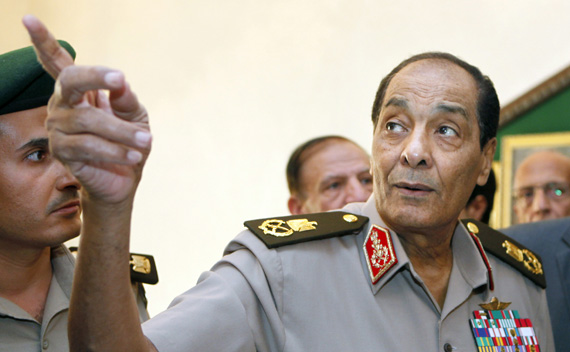Habla Espanol, Mushir Tantawi?
More on:

In a piece today at ForeignPolicy.com, I argued that the root of Egypt’s present troubles is a worldview on the part of senior military officers that cannot accommodate Egypt’s new political dynamics. Only under massive pressure from growing protests around the country and four days of violence did the SCAF cede ground, declaring that it will transfer power to civilians in June/July 2012 instead of the same time in 2013 as the officers had originally planned. Whether that will mollify the crowds in Tahrir Square or other places in Egypt that have become zones of protest remains to be seen. As I write, reports are coming in of unabated violence in the area near Egypt’s Interior Ministry. One tweet called it an “apocalyptic scene.”
Through all the events of the last four days, it has been hard to gauge what the military is doing and what its commanders are thinking, but there are some hints. The lag of almost twenty-four hours between the time of that Essam Sharaf’s government offered its resignation and the time when reports began surfacing that the military will cede power this coming June/July suggests that the Egyptian military is following the pattern of other militaries around the globe. Readers might think immediately of Turkey or Indonesia, but those examples are not entirely apt. Rather, the Egyptian officers are looking a bit more like some of their South American counterparts. I’m no expert on that area of the world, but I did some reading on it during dissertation research and writing my first book, Ruling But Not Governing. Like the Egyptians, Chilean officers misjudged the politics of the country—in their case with a referendum that unexpectedly did not go in the military’s favor—that triggered a transition to civilian rule. Perhaps a more appropriate comparison is Argentina, where the officers so bollixed up the country in the late 1970s and early 1980s, that they practically begged civilians to take over. We are definitely not there yet in Egypt. Still, with evidence of officers defecting in Tahrir Square and the country on the verge of chaos, the SCAF may now be more concerned with saving the armed forces as an institution and are beginning to negotiate their exit from politics.
If this is in fact the case, it is good news. Chile and Argentina with their functioning economies and democracies look extremely good in comparison to an Egypt that after 60 years of authoritarian rule is on its knees. Habla espanol, Mushir Tantawi?
More on:
 Online Store
Online Store